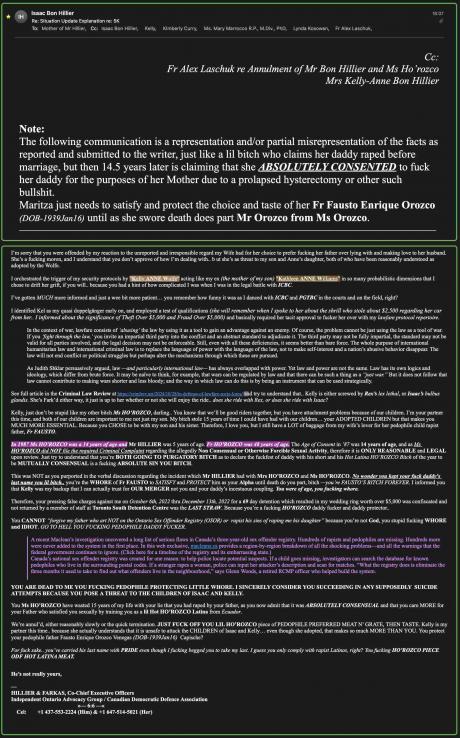
We all have it in us to be manipulated or to become manipulators. Even just batting your eyes at someone in a flirtatious way could be labeled as manipulation. Sadly, some people escalate to become deceitful and nasty manipulators, exhibiting various examples of manipulation in relationships.

We all have it in us to be manipulated or to become manipulators. Even just batting your eyes at someone in a flirtatious way could be labeled as manipulation. Sadly, some people escalate to become deceitful and nasty manipulators, exhibiting various examples of manipulation in relationships.
Manipulation by your partner can make you question your own worth and version of events. It can also negatively impact your confidence and insecurity levels in the long term. That’s why it becomes essential to identify when someone is trying to manipulate you.
Defining manipulation in relationships
Manipulators exploit and control people to serve their needs and goals. Examples of manipulation in relationships include not giving you a straight answer. Sometimes that’s because they don’t know any other way of communication.
Narcissists and psychopaths, for example, are expert manipulators partly because they don’t feel any empathy. Of course, they also want to achieve their goals of being center-stage and getting what they want in life.
All of us are potential targets because we generally want to believe the best in people. Moreover, the signs of manipulation can be subtle, especially if enveloped in charm. Either way, whether it’s positive or negative forms of manipulation, you’re still being forced into feeling or doing something you don’t want to.
How to notice the traits of a manipulator
You can’t always easily recognize examples of manipulation in relationships because they can be confusing. They might look friendly and charming on the surface, but deep down, there’s a dark motivation.
If you’re feeling confused, guilty, or physically abused, you could be with a manipulator. Look at this article on how to recognize manipulators for more details.
25 signs of manipulative behavior in relationships
How to recognize manipulation starts with observing and naming the behavior. It will be hard to ignore your doubt that it’s you because master manipulators live off creating confusion.
Nevertheless, go through these examples of manipulation and don’t be afraid to accept them if that’s your experience. There’s no shame, and, on the contrary, it’s a brave step to take.
1. Blaming language
All examples of manipulation in relationships control how someone thinks and behaves. Regardless of the motivation, language is still one of the most powerful ways to sow the seeds of doubt.
Blame is personal and most people stop and think when they get accused of not being their ideal best. That’s when you start doubting yourself and wondering if it’s you or your partner.

Imagine hearing all-day-long statements such as these manipulative language examples: “You’re overreacting,” “You’re imagining things,” and “You wouldn’t question me if you loved me”? Any normal person would start succumbing and doing whatever the speaker wanted.
Related Reading: How to Deal With Someone Who Blames You for Everything
2. Blackmail
Emotional blackmail is another critical example of manipulation in relationships. People do this by giving the silent treatment or sarcasm to get what they want. They might even accept to do something you want to later use as a bargaining tool.
Psychotherapist Susan Forward, in her book ‘Emotional Blackmail,’ took things one step further and defined what she referred to as FOG: Fear, Obligation, and Guilt. Essentially, blackmailers want something from you, and they’ll pressure you through those emotions to force you to give in.
These can be subtle manipulation tactics, but they are firmly on the list of indicators of manipulation in relationships.
Related Reading: How to Handle Emotional Blackmail in a Relationship
3. Repackage the truth
One of the most obvious examples of manipulation in relationships is that they’ll twist the truth or leave bits out. You’ll find yourself almost doing a double-take as you listen to your manipulator and realize that their truth makes them look so much better.
The worst part is if you start denying their truth and arguing that they’re wrong. That’s when they might use the full force of their manipulative communication style. It can get gruesome, very personal, and nasty very quickly.
4. Gaslighting
This example is similar to repackaging the truth, except that you lose yourself and your ability to tell the difference between what’s real and what’s not with gaslighting. You essentially start believing you’re going mad.
According to marriage & family therapist Jelisha Gatling:
If you find yourself constantly questioning your reality or if your feelings are valid, you may, in fact, be with a manipulator. Be wary of this, especially if you have typically felt self-assured prior to the relationship.
A healthy partner should employ curiosity and a desire to understand you if they are confused by your feelings or perspective.
As research on gaslighting explains, there are different ways to manipulate someone into thinking they’re mad. These include denying facts, minimizing events, changing topics, blaming inadequacy, and keeping information back. All of these can also be examples of manipulation in relationships.
Related Reading: Am I Being Gaslighted?
5. Passive-aggressive
One of the frustrating examples of manipulation in relationships is when people don’t say what they mean. Alternatively, they’ll stay silent and just glare at you, leaving you trying to guess what’s wrong.

Other manipulative language examples that are passive-aggressive include saying “I’m fine” through gritted teeth or saying “thank you” to a criticism. Essentially, that person has negative emotions that they can’t or don’t want to share openly.
Related Reading: How to Deal With a Passive Aggressive Spouse
6. Threats of separation
According to research, we get scared because of what could happen and our inability to predict it. This is a powerful tool for subtle manipulation tactics because fear keeps bubbling away at the back of your mind.
-
So, when your partner threatens to leave you, take the kids, or the house, you don’t necessarily believe it at first. Nevertheless, it creeps into your dreams, and your anxiety rises, and you find yourself succumbing to the traits of a manipulator.
7. Constant drama
Examples of manipulation in relationships usually revolve around drama. So, you’ll find your partner might make sweeping judgments or generalizations about you. For instance, “You’re the only one who knows how to do this” or “No one does it like you.”
The worst manipulative communication style is threatening you with suicide. Often, this is just another tactic, but the worst part is that you’re not sure. Regardless, you also need to look after yourself. That’s why it’s perfectly ok to call for professional help in those cases, such as the local suicide hotline.
Related Reading: Types of Drama You’re Too Old to Deal With in a Relationship
8. Pretending confusion
Types of manipulation in relationships often include denial and feigned confusion. For instance, your partner might pretend not to understand that you want something done.
Alternatively, they might deliberately do something wrong to avoid helping around the house. A typical example could be loading the dishwasher with the crockery in the way of the spinning blades.
9. Using anger and intimidation
Emotions are the best tool for controlling and manipulating other people. Most of us like to think we use logic and reason to make decisions. Nevertheless, we also need emotions.
Moreover, many of us aren’t taught how to manage our emotions, so we become easy targets. As this study explains, even psychopaths understand the force behind emotions to get people to do what they want, despite not feeling emotions.
Anger and intimidation are great examples of manipulation in relationships because they make us stop and freeze. We want to do everything in our power to protect ourselves. So, the manipulator wins.
10. Vague boundaries
Another big clue for how to recognize manipulation is when boundaries are all blurry. Manipulators want to keep all their options open to maximize their personal gain. They can’t do that with fixed boundaries.
Instead, they’re very clever at adapting to situations to get the most out of those around them, not just their romantic partner. This further adds to your confusion as you hear them defending vastly different opinions time and time again.
Related Reading: 6 Types of Boundaries in Relationships & How to Maintain Them
11. Play the victim
Examples of manipulation in relationships are about control. What better way to do that than by leveraging sympathy? If you feel sorry for them, you’re more likely to comply. Yes, they’re using the fact that you’re a good person against you.
Considering that the best manipulators are psychopaths and narcissists, neither of whom can feel empathy, this isn’t surprising. They still understand enough about human behavior to use you for their selfish gain.
Have a look at this video to learn some clear signs that someone is always playing the victim:

Also Try: Am I in a Relationship With a Victim Quiz
12. Overcompensate with flattery
Whatever types of manipulation in relationships you’re experiencing, they’ll take a toll on your emotions. One day, you’re being criticized, and the next, you’re showered with compliments. Again, master manipulators are adept at adapting to situations.
Interestingly, you don’t necessarily know what makes them hot or cold because it also involves their issues and insecurities. Sadly, manipulators usually use these tactics to hide their inadequacies or crave something, often power.
13. Impose their agenda
As mentioned, power can have a lot to do with the examples of manipulation in relationships. So, you’ll notice them forcing specific topics into conversations. They’ll also only pay attention when it’s something they want to talk about.
The overall drive behind these forms of manipulation in relationships is to show that they know more than everyone else. Manipulators want to be superior no matter the cost.
Related Reading: Is My Partner Manipulating Me Quiz
14. Changing opinions
One of the confusing traits of emotional manipulators in relationships is that they constantly change their minds about things. As mentioned, this is because they’re trying to optimize their gains according to the situation.
Your partner’s changing opinion can have a massive impact on you because you never know where they stand. You’ll find yourself walking on eggshells as you try to avoid further examples of manipulation in relationships.
15. Guilt trip
Regardless of which examples of emotional manipulation you’re living through, you’ll feel guilty at some point. Ultimately, you’re starting to doubt yourself and wondering if you are the cause of all these issues.
The best manipulators will then play with your guilt to get even more out of you. It’s actually another form of gaslighting because you start feeling responsible for something you never did. You then try to change your behavior, but the manipulator knows they’ve got you by then.
16. Claim ignorance
That manipulative communication style that makes the manipulator simply look dumb is usually frustrating to the victim. Add to that all the confusion and pain, and your emotional health will be screaming for help.
Generally, the overall goal is to avoid doing whatever you need or want. It could also be a way to avoid helping around the house or with the kids. As examples of manipulation in relationships go, this one aims to frustrate you into doing whatever your manipulator wants.
17. Focus on your insecurities
Emotional manipulators in relationships know how to use your doubts against you. So, when you worry about not being good enough in the relationship, they’ll reinforce that by telling you that you’re never there for them.
The idea is that because you feel bad about yourself, you give in to their demands in the hope of feeling better. This is only one of the examples of manipulation in relationships, and with time, you’ll feel worse because you keep sacrificing your own needs.
Related Reading: 8 Signs Indicating Insecurity in Relationships
18. Overreaction over petty fights
Other examples of emotional manipulation include picking fights with you over petty things. Issues are over-exaggerated, and there is an overreaction that makes you feel guilty and cornered. It can convince you that you are the cause of immense upheaval.

The driver behind these examples of manipulative behavior is to deflect the focus onto you and your perceived mistakes. It can have the effect of making you feel under-confident and guilty, which the manipulator can use to get what they want.
Related Reading: Guilt Tripping in Relationships: Signs, Causes, and How to Deal With It
19. Judge and criticize
Demeaning and critical language is also one of the common examples of manipulation. This allows the manipulator to shame you and either crush you or put you on the defensive. Sometimes this can be done through so-called humor or sarcasm.
Either way, it’s hurtful, and your self-esteem takes a beating. As this form of abuse continues, you might start doubting yourself so much that you cut yourself off from family and friends. You essentially enter a vicious circle of self-doubt and loneliness.
20. Overwhelming attention
Confusing examples of manipulation in relationships are when they shower you with attention. This will come across as love, for example, caring statements, perhaps doing things around the house, or helping you in some other way.
Giving you overwhelming attention can happen at any time in a relationship but can be particularly overwhelming at the start.
You find yourself caught up in a whirlwind as you move through the dating stages faster than you would want. Suddenly, all decisions are made for you, and you feel that you owe them something.
21. Changing criteria
Manipulators are adept at adjusting their views and shifting their goals according to a situation. This logical fallacy is a tactic commonly used by narcissists and sociopaths. Overall, they keep raising their expectations of you such that you feel that you can never be enough.
The general aim is to make themselves feel good by appearing superior. They need someone to serve their needs and fill the void with no empathy for others.
Of course, they’ll never actually see how much effort you put in but will keep demanding more until you’ve completely burned out.
22. Physical intimidation and control
Most of the above examples of manipulation in relationships involve language. Let’s not forget physical aggression or simply using one’s body to intimidate and coerce you. This accentuates your fear, and again, you’re more likely to give in as you try to stay physically safe.
All examples of manipulative behavior are about control, but they are also about not facing responsibility. So, manipulators end up living in this absurd paradox where they don’t want to be responsible for anything, and yet, they want to control you.
Controlling you lessens their fear of being abandoned while giving them the impression that you’re in awe of them. Moreover, by confusing you, they’re defining your so-called reality, giving them a sense of false security in a constantly changing world.
Related Reading: 25 Signs You’re in a Controlling Relationship
23. Gifts to buy you back
Bribery is perhaps one of the more straightforward examples of manipulation in relationships to spot. Imagine having just been scolded and criticized to find your partner goes out to buy you a bunch of flowers. The apology might seem sincere but it’s just a bribe to get you back in their control.
Naturally, if this is a one-off incident, you might be dealing with a simple trigger that upset your partner. In a healthy and grounded relationship, you can talk through it together and understand what you both need from each other.
24. Pitch others against you
Painful examples of manipulation in relationships are when your family and friends start siding with your manipulator. They are often charming and adept at spinning a story that many of us are fooled by.
Narcissists are so good at this that they often start fooling themselves. Moreover, they stay center stage by getting friends and family on their side. Narcissists crave attention and devotion, and they’ll charm and lie their way to get it.
25. Emotional outbursts
Manipulators want the world to revolve around them. Tragically for them and those around them, they never learned the tools to manage their emotions and navigate life in a socially acceptable way. With uncontrolled emotions, even adults can have tantrums, not just children.
In terms of adult tantrums, you might observe increased agitation, faster pacing, or aggressive movements. When this happens, you don’t want to get involved, so walk away as peacefully as possible to keep yourself safe.
Handling emotional manipulators in relationships
First, you need to observe examples of manipulation in relationships and work with a coach or therapist to understand your part of the dynamic. Sometimes, we unknowingly pick up manipulative behaviors too.
Secondly, learn about your needs and how to establish boundaries based on them. Try to work with your partner, perhaps through couples counseling, to support each other to understand your motives for your behaviors.
Conclusion
Manipulators leave hurt and confusion in their wake through the many examples of manipulation in relationships. These range from gaslighting to lying, guilt-tripping, and even flattery. You’re then left in doubt about whether you’re doing enough for them.
It’s not always possible to heal and recover from unhealthy relationships.







Comments
https://www.marriage.com/advice/relationship/examples-of-manipulation-in-relationships/
You need to read the article written by Anne Duvaux, Coach that you posted crediting it to someone else to it.
Based on your numerous posts about your wife and yourself. You need to recognize that you are using these abusive tactics to attack your marriage and your wife. You need to seek individual counseling for yourself. Recognizing that rape is a crime and traumatic means you will not try to do exactly what the article says is abusive. You post information acknowledging that a childhood abusive past is traumatic but then go about exposing treating it as if if was a paper cut. You treat rape with careless regard to your spouse's feelings. You are out of your realm to claim to understand psychology, psychiatry topics. You are a computer tech professional but your poor application of psychology and CSA is clumsy and unprofessional. You are not qualified as a rape counselor or marriage counselor or therapist. If she left you, you need to ask yourself questions as to what you did wrong, what hurtful words, relationships, actions did you do to cause her to leave. For example, this site is not going to lead to her return. Continuing to treat a her like a perpetrator of crimes and blaming and using exactly same tactics that this article mentions as manipulative will only push both of you away. By putting online your assumptions, accusations, and disrespectful words you are further showing your ignorance to these topics. Recognizing that you are abusive and removing these accusatory posts is crucial to your well being. I hope you take this advice from a reader of your website but soon to not becoming a fan or admirer. Your site is chaotic, disorganized, and is becoming your hate filled one sided misogynistic forum. I am not a fan but am a concerned reader. You are spiraling out of control, get some mental and spiritual help.
Seek a counselor and recognize that you are a psychopath who is out of control.
From reading your sites you exhibit a grandiose attitude, you don't see yourself in error and you treat your children as mere trophies. You're callousness towards others and your wife show a bad example to your children. You are a narcissist, psychopath and need to get counseling. You use these manipulation tactics and pretend to not recognize that it is abusive.
- Reply
Permalink